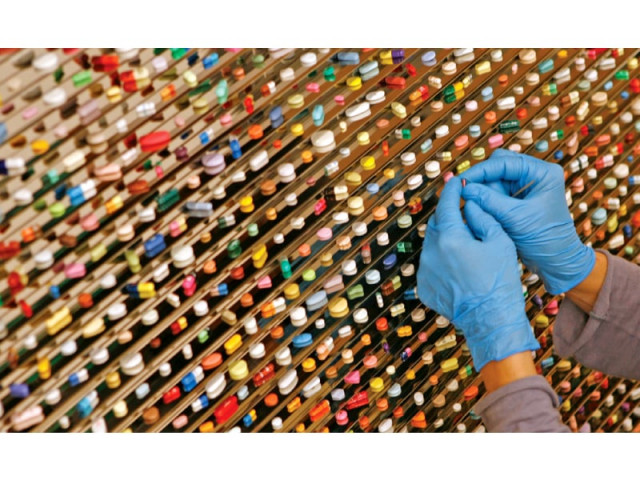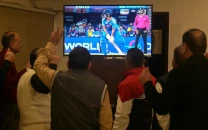Top drug regulator to digitise all records
Body refutes allegations of fixing prices higher than that demanded by companies

Body refutes allegations of fixing prices higher than that demanded by companies. PHOTO: REUTERS/FILE
This measure would help improve the efficiency of the authority and enhance transparency, an official of the Drug Regulatory Authority of Pakistan (DRAP) said in a statement on Tuesday.
The digitised records will also help in publishing the Pakistan National Formulary.
Young pharmacists and drug lawyers had alleged that in a recent meeting of the drug pricing committee the regulator had affixed prices of two hepatitis medicines higher than demanded by the companies.
But DRAP refuted the allegations noting that the Drug Pricing Committee had recommended a maximum retail price of drugs according to the Drug Pricing Policy-2015.
“It is baseless [to say] that prices of Daclatasvir 60mg and 30mg Tablets and Sofosbuvir + Ledipasvir 400mg/90mg Tablets were fixed higher. As a matter of fact, the committee recommended a maximum retail price of Daclatasvir 60mg tablets at Rs4,552/28’s and Daclatasvir 30mg tablets at Rs2,782/28’s as the lowest demanded prices by a manufacturer whose drug had been approved by the registration board,” the body said.
“The recommended price of Daclatasvir 30mg tablets was less than half of its price in India (equivalent to Rs5,909) - this strength is not available in Bangladesh- and the DPC recommended price for Daclatasvir 60mg tablets which was again less than half of its price in India (equivalent to Rs9,799) and a quarter of its price in Bangladesh (equivalent to Rs16,878).
The price of Sofosbuvir + Ledipasvir 400mg/90mg tablets, the body said, was recommended as per provisions of the Drug Pricing Policy-2015 which was again 29 per cent lower than its price in India (equivalent to Rs37,912) and less than half of its price in Bangladesh (equivalent to Rs66,928).
“Under no circumstances, demanded prices by a company whose drugs have not been registered by the registration board can be considered as a benchmark,” it said.
Moreover, it refuted allegations of increasing prices of drugs by Otsuka in the past five years. “Information being provided by some elements in this regard is baseless,” it said, adding that in 2011, after the devolution of health ministry , almost all six manufacturers of Intravenous solutions had increased prices of their drugs and managed to obtain stay orders from the Lahore High Court.
The Cabinet Division (Drug Control Administration was under administrative control of Cabinet Division after devolution of the Ministry of Health) contested the cases in the High Court after which the court directed the government to resolve the matter.
The matter was subsequently placed before the DPC and four manufacturers, including Otsuka, explained that due to a steep increase in input cost it had become unviable to produce and market these drugs at previous rates.
“The DPC, after considering all facts, decided to reduce prices of decontrolled four drugs which were increased by the manufacturers to unjustified level (after obtaining stay orders from the court) and increased prices of controlled drugs up to justified level.”
The authority accused elements involved in the illegal manufacture of banned sex drugs, unregistered drugs and violating licencing rules for levelling baseless allegations against DRAP.
“Whenever actions were initiated by DRAP against these elements, they attempted to pressure officials of DRAP and the ministry for their vested interests,” the statement concluded.
Published in The Express Tribune, April 19th, 2017.


















COMMENTS
Comments are moderated and generally will be posted if they are on-topic and not abusive.
For more information, please see our Comments FAQ